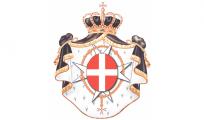61st Session of the Commission on the Status of Women
17 March 2017
Priority Theme Item 3 (a)
Statement by Mrs. Fiamma Arditi
Minister Counselor
Mr. Chair,
I would like to express my sincere appreciation for giving me the floor and allowing the Sovereign Order of Malta to actively contribute to this discussion. We acknowledge the vast achievements in the field of women’s rights and equality over the past decades, however, much is still to be done. We have great confidence that the continued commitment of the United Nations community, much of which is represented here today, will be a relevant factor in the good work of this interactive dialogue. We welcome this opportunity to discuss the challenges and achievements in implementing the Sustainable Development Goals for women and girls.
Mr. Chair,
Empowered women fuel thriving economies, spurring productivity and growth; yet, gender inequalities remain deeply entrenched in every society. Women lack access to decent work and face occupational segregation and gender-driven wage gaps. The Order believes more can be done to accelerate progress in women’s empowerment. The movement for gender equality must begin with basic services at the lowest levels of society, as those services are often denied or inaccessible.
A core project at the roots of the Order is the Holy Family Maternity Hospital in the Bethlehem. Dating back to 1882, the Hospital provides free, high quality care for Palestinian mothers and infants, completely regardless of ethnicity or religious beliefs. The Hospital, containing 63 Beds and 18 in Neonatal Intensive Care, provides services such as prenatal care and delivery, over postnatal care to gynecology. Being the only Hospital providing high-risk pregnancy care in the occupied Palestine, we were able to deliver 55.000 infants since 1990, without any maternal death. 3300 deliveries per year. 150 qualified medical staff members work hard to ensure an infant mortality rate as low as 2%, which is comparable to any western standard.
The Order of Malta, a sovereign and neutral entity, has made it its duty to serve those in the frailest of the human conditions. The Order has effectively been dedicated to relief worldwide suffering for more than 900 years. Through its worldwide relief organization Malteser International, the Order is also actively engaged in improving the status and living conditions of women and children, often in regions where this aid is most needed. Its humanitarian projects, implemented through the cooperation of local, national, and international partner associations, work to advance the achievement of the Sustainable Development Goals.
The project “Save a Child from AIDS” in Mexico City is a three-year long program that helps HIV positive mothers to protect their newborns from HIV infection. Malteser International and Order of Malta Mexico support the mothers in three ways: First, they receive medical counseling, regular check-ups and follow-ups, ensuring the mothers continue the antiretroviral treatment. Second, the women receive nutritional support, as many live in poverty or lack access to nutrition information. Third, psychosocial support and counseling is provided, helping them deal with discrimination from their families and society. They take part group and individual therapies. Being marginalized, many of the women have lost their jobs and have no income. To get back on their feet again, the women are encouraged to establish micro enterprise, in order to receive additional income.
As this project exemplifies, the Order is compromised with the empowerment of women in alignment with the Fifth SDG by elevating their voice in their communities. Such projects also work towards the attainment of the Third SDG through the prevention of disease. Providing hygiene-training to the women ensures that the knowledge will remain for generations as the women share their knowledge with their children and other members of the community.
This becomes visible by the Orders projects in Colombia, a country experiencing internal conflict and displacement of communities, which experiences as lack of access to basic services for people in affected rural and remote areas. Malteser International Americas in engaged to provide aid to the people in La Guajira and Magdalena. In these areas there is only limited access to healthcare services and most of the existing health centers don´t have an adequate infrastructure nor equipment. As the high numbers of malnourished children in the region show, there is a big supply gap in the field of Primary Health Care. To minimize maternal and child mortality, the Order is rehabilitating and equipping 20 health centers, establishing of a sustainable supply system with drugs and food supplements. By training 40 health workers and traditional midwives who can provide their services in local communities, access to and quality of basic health services, as well as a stable women’s network, is strengthened.
These are just a few of the projects that the Order of Malta has set into action. The Order understands that every community is different and requires unique attention. There is no ‘one size fits all’ solution. Projects must engage local people, empowering them to help themselves. At the core of these communities are the strong, intelligent, resilient women who, with just a little help, can be the force to carry the next generation towards the achievements of the Sustainable Development Goals.
Allow me to conclude by stating that the Order of Malta is committed to working with national and local governments, UN aid agencies and NGOs, so that this generation of women has equal access to safety, security and achievement – a goal that has not yet been realized and a goal that is their right.
Thank you, Mr. Chair


